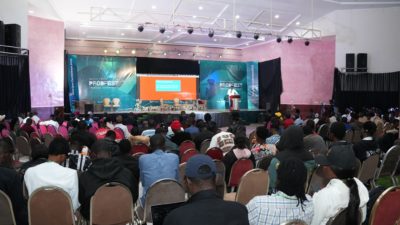The House leadership dexterously navigated itself from sitting to pass that bill. You may say a rejected bill spoilt the chance of another one with no issues.
A mix of factors including legislators’ apathy toward the Nigeria data protection bill and stakeholders’ resentment with legislators’ disagreement over the NITDA bill may have stalled their passage into law as the 9th National Assembly comes to an end June 11, about six days away.
RELATED: Buhari writes Senate to approve Nigerian Data Protection Bill
“The NITDA bill never made it because the House of Representatives agreed with stakeholders that the bill would be counter-productive. Despite the friendly posture of the Senate to the bill and the efforts by some honourable members to expedite its passage, strong reasoning prevailed among the House’ leadership and it was not among the bills that became Acts in the last week of Mr. President’s stay in office,” a House member told IT Edge News.Africa in Abuja. He is a returning member of Nigeria’s 10th National Assembly that will be inaugurated Tuesday, June 13, 2023.
Angst over NITDA bill impacted negatively on data protection bill?
“Unfortunately, that bill and the data protection bill suffered the same fate as the House leadership dexterously navigated itself from sitting to pass that bill. You may say a rejected bill spoilt the chance of another one with no issues,” he added.
The National Information Technology Development Agency (NITDA) Bill as the National Information Technology Development Agency (NITDA) Act 2007 repeal and re-enactment 2022 not only incited disagreement in the National Assembly (NASS) between members of the Senate and the House of Representatives Joint Committee on Cyber Security, it was strongly opposed by major industry stakeholders including the Association of Telecommunication Companies of Nigeria (ATCON), Nigeria Computer Society (NCS), Association of Licensed Telecoms Operators of Nigeria (ALTON), and Computer Professionals Registration Council of Nigeria (CPN).
The journey for a Data Protection Act
The journey to have a Data Protection Act started with the Data Protection Bill 2020, initiated about two years ago which gained considerable traction all of 2021 with the creation of the Nigeria Data Protection Bureau (NDPB) to boost public confidence in the making of an all-inclusive federal data protection law.
The NDPB helped to inflate national optimism around the passage of the bill through series of activities that included the Data Protection Law Focus Group Discussion organized by it and the Nigeria Digital Identification for Development Project (ID4D), a World Bank funded initiative focusing on promoting digital identification systems to improve development outcomes while maintaining trust and privacy.
In April 2023, President Muhammadu Buhari, in a letter read on the floor of the Senate and House of Representatives, transmitted the Nigeria Data Protection Bill, 2023 to the National Assembly for consideration and passage which deepen public confidence that data protection bill will become a law before the administration leaves in May 29, 2023.
The Senate passed the bill May 3, 2023 following a third (and final) and subsequently sent the bill to the House of Representatives for consideration and thence, for onward transmission to the President to sign.
It would appear the bill never left the chambers of the House of the Representatives.
The trouble with NITDA bill
The NCS and CPN alleged that the NITDA bill lacked stakeholders’ input and argued that the bill attempts to appropriate the powers of other government agencies to NITDA to potentially make NITDA a ‘Super Regulator.’
Both ATCON and ALTON are in agreement with this position. They expressed concerns the bill would further foist multiple regulations on operators – a clear signal to investors to stay off the country. The two associations claimed the bill is an attempt to weaken other government agencies in the country, particularly the Nigerian Communications Commission (NCC) and arrogate its existing powers to regulate telecom operators to the NITDA.
































